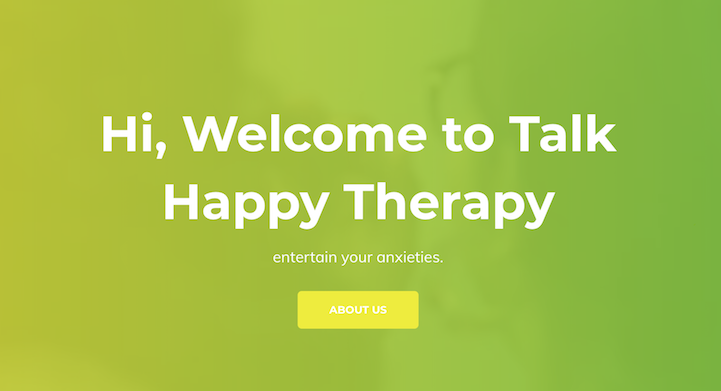Is Your Therapist Right for You?
By Kamna Chhibber
Therapy is a work in progress – a project if you may. And if you wish to succeed on your project you need to partner with the right people. In the case of therapy, it’s your therapist who needs to walk alongside you, holding you through sticky situations, guiding you and advising you without being judgmental and dictatorial, helping you reach your fullest potential by identifying and understanding the patterns you have, the thoughts you harbour and the personality you possess.
Deciding if you are working with the right therapist can be tricky at times. Some key factors can play a deciding role. Let’s take a look at five of these.
Also Read: Five Myths About Therapy
- How good is the connect?
There is no rating scale or a prescribed set of aspects that define the quality of the connect you have with your therapist. It can be articulated as the feeling of being understood in the sessions which best describes the nature of relatedness that you experience. If you feel your therapist ‘gets you’ it means that you have a good connect. Like any relationship there can be moments of disconnect that do occur, but don’t be too harsh and take a call based on a longitudinal and cross-sectional analysis of situations instead of basing it on a singular experience. - Are you feeling judged?
Relationships are mostly conditional, and we all seek a space that can allow us to be who we are. A therapeutic relationship needs to be just that – unconditional and non-judgmental – allowing you to fully explore and express the depths of your thoughts, feelings and experiences without needing to hide or censure aspects. This can change the whole context in which therapy takes place for you and is a very crucial aspect when you work with your therapist.
Image Courtesy Raw Pixel - Do you feel heard?
Often in our relationships we don’t feel heard. Sometimes we can also feel invisible. This must certainly not be the case in therapy. You need to be the most important person in your therapy and you should be feeling heard. It should not seem as though your agenda does not have space instead it is what your therapist wants to look at which gets discussed. If the scenario is such that your therapist sets the agenda and you don’t find therapy to be a collaborative process which largely gives space to what you want to look at and do, it is a potential red flag. - Is the therapy about you?
There are many thoughts about personal disclosure and personal opinions being shared by therapists. Some schools of thoughts absolutely prohibit them, while others can have a more lenient view on this. The space occupied and time consumed by personal disclosure should not be at the cost of the client’s time and well-being. At the same time, if you as a client are seeking to know your therapist don’t be offended if your therapist does not want to engage in personal disclosure. Personal opinions of therapists have no place in therapy as we are trained to look at situations most objectively without allowing our personal biases, judgments and opinions clouding the work we do with people. This aspect is very crucial in how we work with our clients and you would want to be sure that your therapist is doing therapy on the basis of what you bring to the therapeutic situation and not on the basis of their own personal opinions and biases. - Do you feel you are moving?
Movement in therapy in terms of the personal goals you have set is extremely important. You can at times feel stuck in your therapy as it can take time for things to fall into place or for full acceptance of a situation or what you may be trying may not be working or there may not be much you can do in a situation. However, these are usually temporary phases. If you do not feel like you are moving at all in your therapy it is a matter of concern and you should think of doing something about it.
These red flags in therapy do not mean you need to end your therapeutic relationship with your therapist.
It would be a good approach to have a conversation with your therapist about your thoughts and feelings. If the conversation can help bring a change in the direction the therapy is taking it would be an ideal solution. If you still feel dissatisfied despite all that you have tried then you could consider undertaking therapy with someone else.
Also Watch: Dr Amit Sen on Bullying and Children
However, a word of caution here. Do not be in a rush to judge your therapist. Think about it and ask yourself, “Is it really that bad?” If the answer is a resounding “Yes” then go ahead and find someone else. If not, then think again and evaluate if you are being too harsh in your assessment of your therapist.
About the Author:
Kamna Chhibber is a Clinical Psychologist, Heading the Department of Mental Health and Behavioural Sciences for Fortis Healthcare. She is a cognitive behaviour therapist, with a particular interest in relationships, trauma, abuse and the impact of personality-related variables on mental health. She has been in practice for the past decade.
The next blog in our series will be on “5 things You Can Do to Make the Most of Therapy”.
Feedback is welcome: Tweet @Kamna_Chhibber + @healthcollectif
Disclaimer: Material on The Health Collective cannot and does not claim to substitute for expert advice from a trained professional.
Feature Image: By Simon Rae on Unsplash




Pingback: Anxiety and Us: What We Need to Know – The Health Collective India